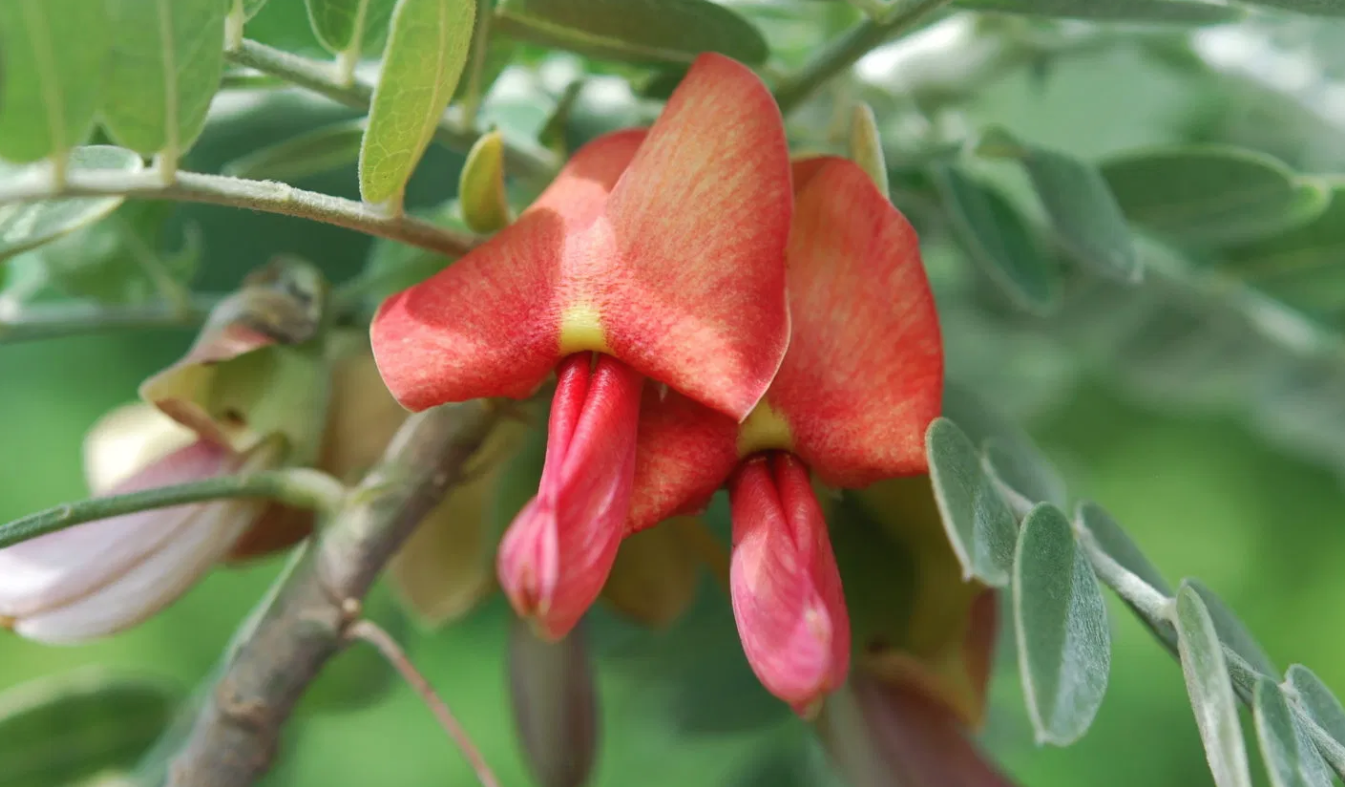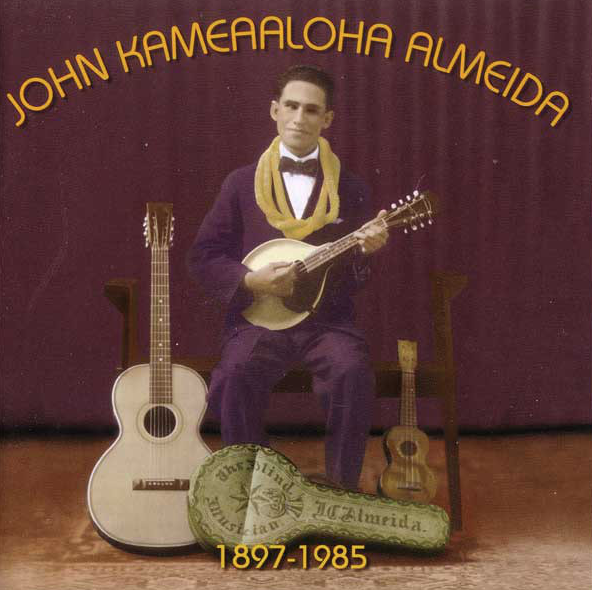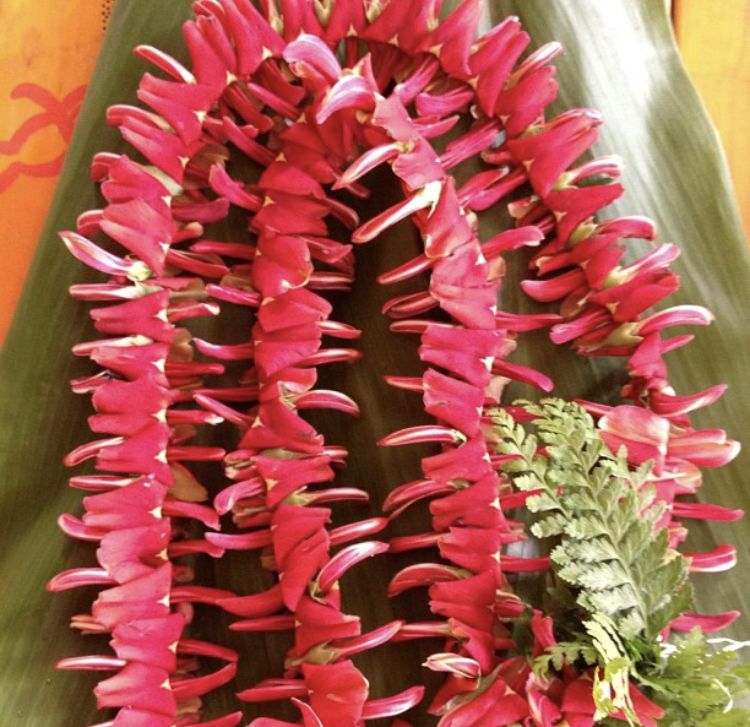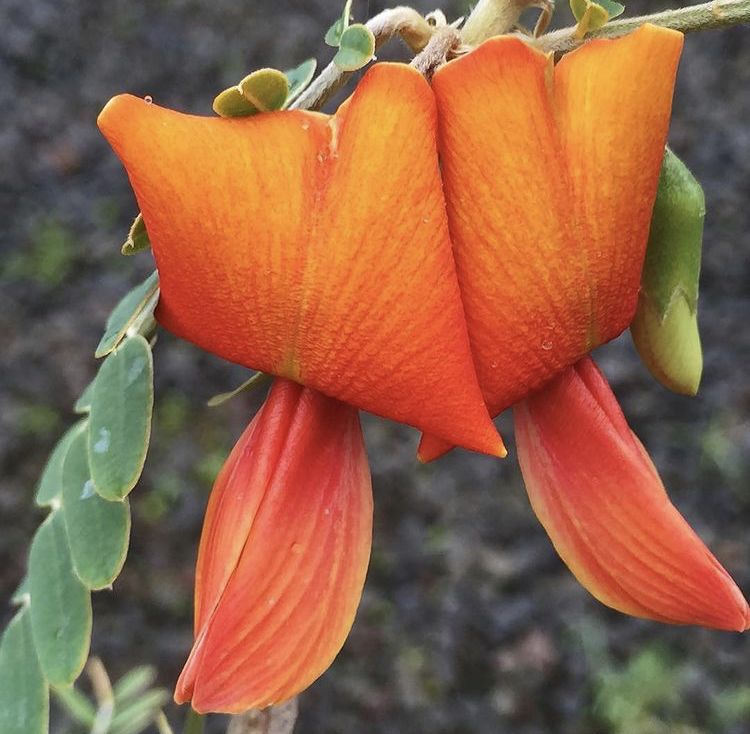Johnny Almeida
Pua ʻŌhai

Mānaleo Series
These short clips of native speakers on Ka Leo Hawaiʻi talking about their lives and practices are invaluable windows into our past, our language, and ourselves. Our mahalo kūhohonu goes out to Larry Kimura and Puakea Nogelmeier for their foresight in preserving the voices of these hulu kupuna.
Listen and read along:
1. Press play on the video below (ensure volume is up).
2. Scroll down and read along in the language of your choice.
3. Repeat as needed.
*Mobile users: Touch the video two times for the button on the upper left and minimize the window to listen and read at the same time.
John Kameaaloha Almeida talks about the song Pua ʻŌhai
LK: E hoʻolohe kākou i kekahi mele āu i haku ai.
Johhny Almeida: Hiki nō.
LK: ʻO ia, ʻo ia kēia mele ʻo Pua ʻŌhai.
JA: ʻAe.
LK: Pehea ka manaʻo o kēia mele? He mele kahiko paha kēia?
JA: ʻAe. He mele kahiko kēia, ma mua o koʻu hānau ʻana. A mālama au i kēia, kēia mele, a hoʻololi aʻela nō i kekahi wahi, kekahi wahi leo maikaʻi i hiki ke hauʻoli nō hoʻi ka pepeiao o ka poʻe ke hoʻolohe mai.
LK: Nāu nō i haku ke ea a me ka– huaʻōlelo.
JA: ʻAe. Naʻu ke ea, a naʻu ka leo, a ʻo nā pila, he ʻehā pila aʻu e pāʻani ai, ʻo ia he–, ma mua, ma mua o ke kani– koʻu hīmeni ʻana, kani ka mandolin, kani ke kika, kani ka ʻukulele, kani ka base.
LK: A hoʻohui ʻia.
JA: Hoʻohui ʻia kēia mea hoʻokahi, he mea na kaʻu engineer nō kēlā
LK: ʻO ka ʻōhai he, he lāʻau ia, ʻaʻole anei?
JA: He kumu lāʻau kēlā.
LK: E hoʻolohe paha kākou i kēia manawa i kēia mele ʻo Pua ʻŌhai...
JA: Hiki, hiki nō.
LK: ...na Pāpā Keoni i haku.

Unuhina (Translation):
LK: We should listen to a song that you composed.
JA: Okay.
LK: It is this song Pua ʻŌhai.
JA: Yes.
LK: What is the meaning of this song? Is this an old song?
JA: Yes. This is an old song, from before I was born. I held onto this song, then changed some parts, and gave it a melody that would make the ears of the people listening happy.
LK: You composed the melody and the words?
JA: Yes. The melody and voice is me, and the instruments. I play four of the instruments. Before I sang it, I played the mandolin, then the guitar, then the ʻukulele, and then the bass.
LK: Then it was put together.
JA: Yes, put together in a single [song], my engineer does that.
LK: The ʻōhai is a plant, no?
JA: It is a tree.
LK: We should now listen to this song Pua ʻŌhai…
JA: Yes, sure.
LK:...that Pāpā Jonny wrote.
E nā hoa e hoʻolohe ana me ka heluhelu pū, ʻoiai ʻaʻole i akāka kekahi o nā huaʻōlelo o kēia mele, ua waiho mākou na ʻokou e hoʻolohelohe a e nalu iho i kona mau manaʻo a kaona hoʻi.

Kiʻi: Ane Bakutis
To those listening and reading: Because we were unsure of some of the lyrics, we have chosen not to present the words or a translation of the mele, rather we leave it for you all to listen carefully and contemplate the meanings evident at its surface and hidden deeper in its layers.

He Manaʻo na Kaliko:
Renown musician Johnny Almeida has graced our ears for decades. From songs like ʻĀʻoia and Green Rose Hula, to his haunting melodies in Kanaka Waiwai and Pua ʻŌhai above.
Pāpā Keoni, as he was endearingly known to Kumu Larry Kimura and his students, was a foundational mānaleo to the early language-learning program at UH Mānoa. This dialogue is taken from the inaugural episode of Ka Leo Hawaiʻi. Pāpā Keoni shares about his beginnings as a musician and how he learned this old song from drinking parties where he spent time around the older generations.
Here, I focused on his description of playing the instruments to highlight how talented Pāpā Keoni was. He was blind, yet, wrote scores of mele that we sing today. Not only was he a prolific composer, but a man of many instruments - every instrument is this recording of Pua ʻŌhai is played by Pāpā Keoni. Talk about a one-man band!
Na Kalikoaloha Martin i palapala, unuhi, a kākau.
Na Hina Kneubuhl i hoʻoponopono a hoʻonohonoho.
Click here to access the full recording on Kaniʻāina.


Kiʻi: Ane Bakutis
Kiʻi: Ane Bakutis

